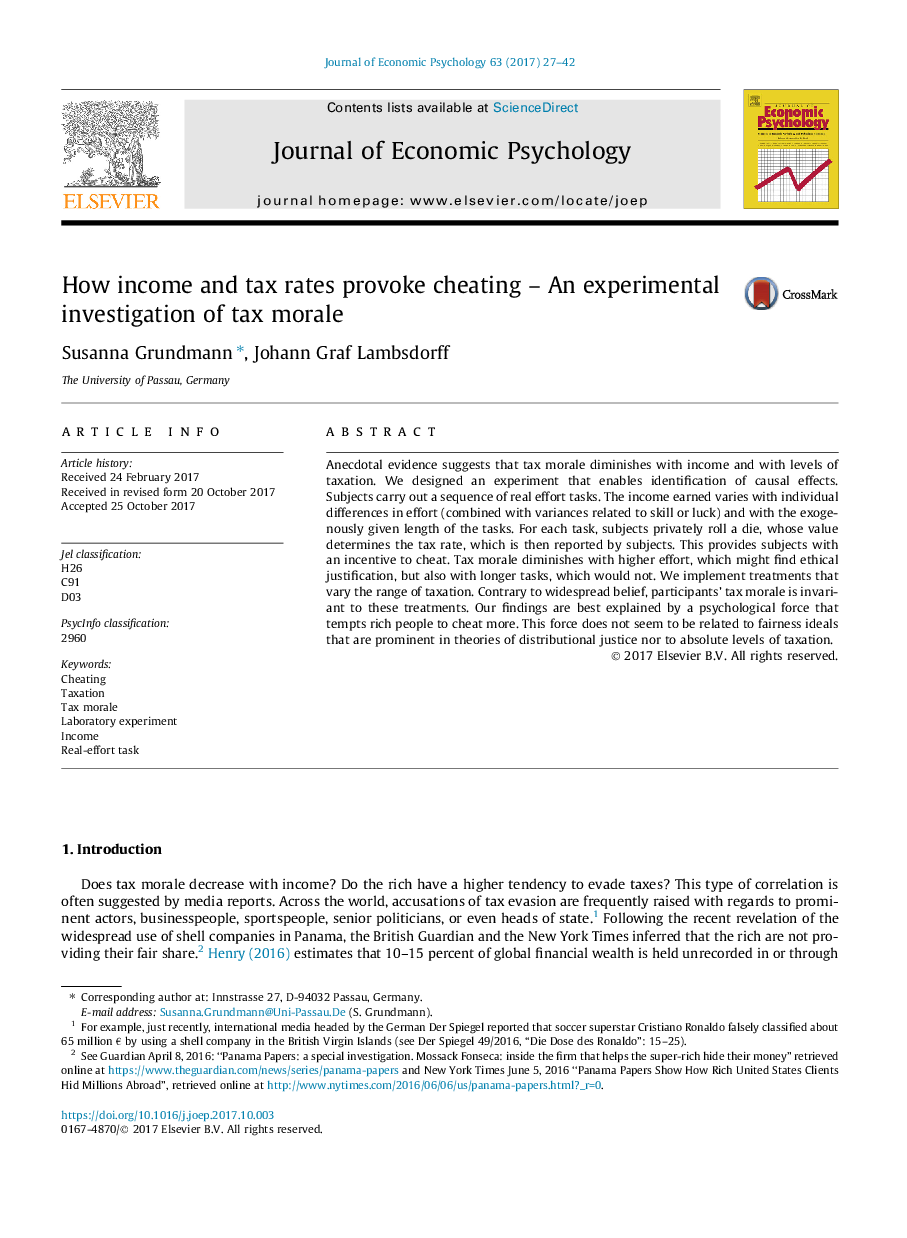| Article ID | Journal | Published Year | Pages | File Type |
|---|---|---|---|---|
| 7244128 | Journal of Economic Psychology | 2017 | 16 Pages |
Abstract
Anecdotal evidence suggests that tax morale diminishes with income and with levels of taxation. We designed an experiment that enables identification of causal effects. Subjects carry out a sequence of real effort tasks. The income earned varies with individual differences in effort (combined with variances related to skill or luck) and with the exogenously given length of the tasks. For each task, subjects privately roll a die, whose value determines the tax rate, which is then reported by subjects. This provides subjects with an incentive to cheat. Tax morale diminishes with higher effort, which might find ethical justification, but also with longer tasks, which would not. We implement treatments that vary the range of taxation. Contrary to widespread belief, participants' tax morale is invariant to these treatments. Our findings are best explained by a psychological force that tempts rich people to cheat more. This force does not seem to be related to fairness ideals that are prominent in theories of distributional justice nor to absolute levels of taxation.
Related Topics
Social Sciences and Humanities
Business, Management and Accounting
Marketing
Authors
Susanna Grundmann, Johann Graf Lambsdorff,
